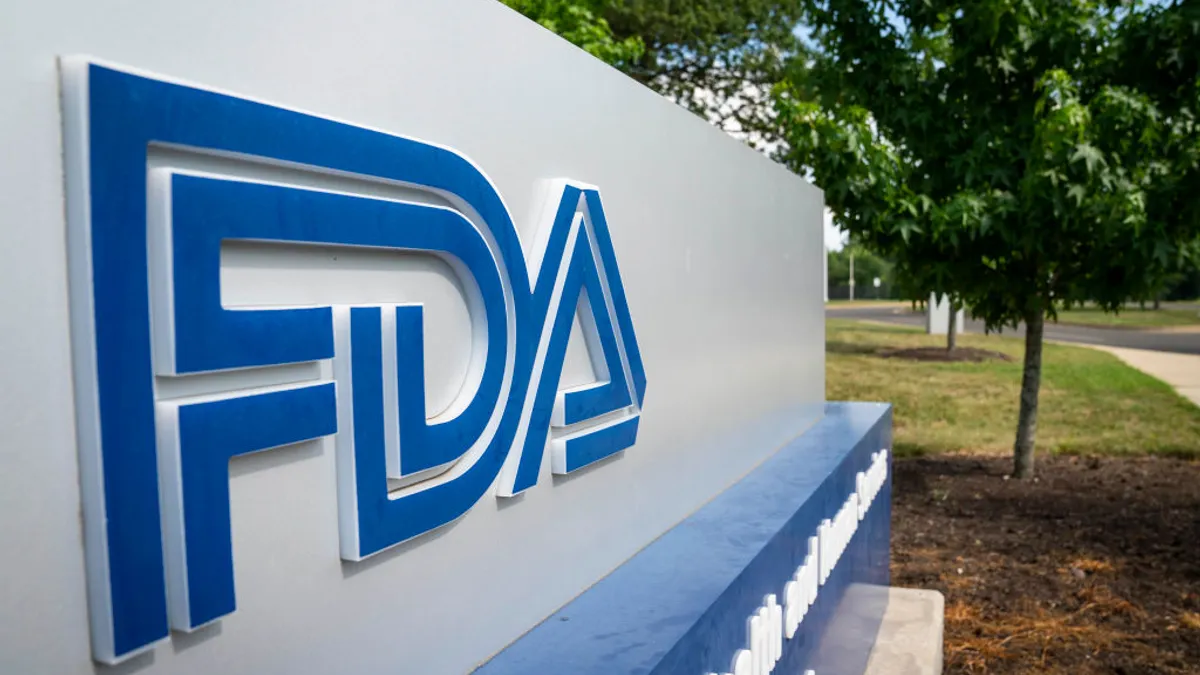The Food and Drug Administration ended 2024 with a quartet of notable drug approvals, including three of new medicines that Vertex Pharmaceuticals, Novo Nordisk and Bristol Myers Squibb developed for cystic fibrosis, hemophilia and cancer, respectively.
The approvals concluded a year in which the agency’s main review office cleared 50 novel medicines, less than the 55 in 2023 but toward the higher end of annual totals over the past several years. The record came in 2018, when 59 were cleared by the regulator’s Center for Drug Evaluation and Research. The FDA’s biologics office also issued 10 new medicine approvals in 2024.
The Dec. 20 clearance of Alyftrek came a few weeks ahead of the agency’s Jan. 2 decision deadline, and extends Vertex’s dominance in the lung disease cystic fibrosis. Prior to Alyftrek’s approval, Vertex had previously brought four cystic fibrosis medicines to market, building a business that generated nearly $10 billion in 2023. Sales are expected to surpass that total in 2024.
Like Vertex’s top-selling drug Trikafta, Alyftrek is a three-drug combination that uses a compound called tezacaftor as its chemical backbone. The two other components are different, allowing Alyftrek to be dosed less frequently — once daily instead of twice — and enabling Vertex to pay lower royalties on drug sales. Testing showed the drug was statistically “non-inferior” to Trikafta on a measure of lung function, and better at lowering the amount of chloride in a person’s sweat, a marker associated with cystic fibrosis.
Alyftrek’s approval could also extend Vertex’s market exclusivity in cystic fibrosis, as the drug’s main U.S. patent expires in 2039, two years after Trikafta’s. Vertex priced the therapy at about $370,000 per year, a 7% premium to Trikafta.
Novo Nordisk’s Alhemo, meanwhile, was approved on Dec. 20 to prevent bleeds in people at least 12 years of age who have either the “A” or “B” forms of hemophilia. The decision came about a year and a half after an earlier rejection and makes Novo’s drug available to those who develop an immune response, or “inhibitors,” to other therapies, unlike Pfizer’s similar medicine Hympavzi.
Bristol Myers also joined Roche in bringing to market a type of cancer immunotherapy that can be administered via an under-the-skin injection, rather than an infusion. The drug, Opdivo Qvantiq, was approved on Dec. 27 for use in most of the solid tumors Bristol Myers’ Opdivo is cleared to treat. Opdivo Qvantiq’s OK follows the September clearance of a subcutaneous version of Roche’s Tecentriq, and comes ahead of the potential availability of an under-the-skin form of Merck & Co.’s Keytruda.
These newer versions are administered more quickly than their predecessors — in Opdivo Qvantiq’s case, within three to five minutes, versus 30 to 60 minutes for Opdivo — and are protected by newer sets of patents. Opdivo’s main patent is set to expire in 2028.
Finally, Lilly on Dec. 20 added a new use for its fast-selling weight-loss drug Zepbound, securing the first clearance of a prescription medicine for obstructive sleep apnea. The drug has been specifically approved for adults with moderate-to-severe obstructive sleep apnea and obesity. Its use is recommended alongside increased exercise and a lower-calorie diet.
The approval adds another new indication for so-called incretin medicines, which are also available for diabetes and have proven beneficial for heart failure, kidney disease and a common liver disorder.













